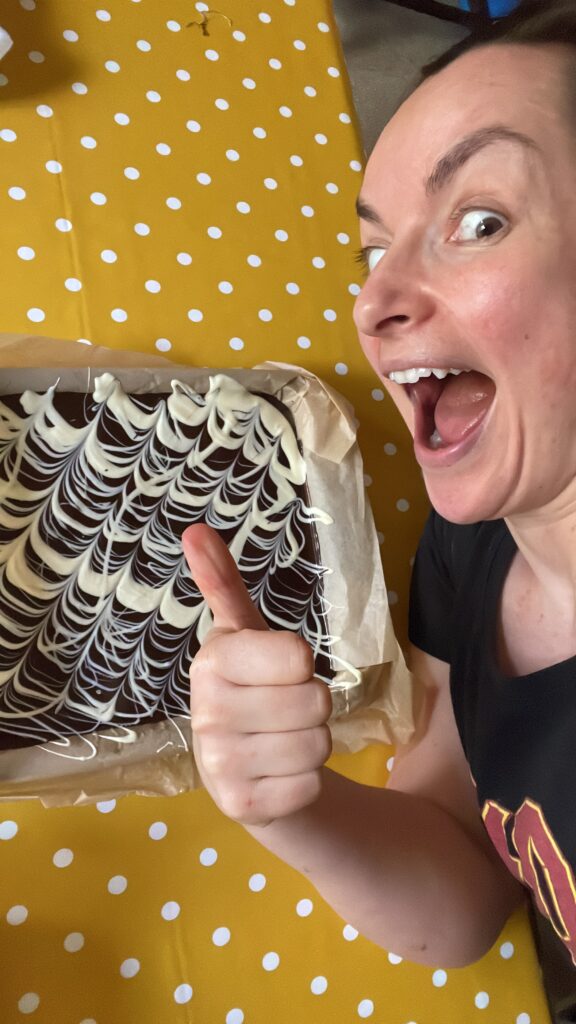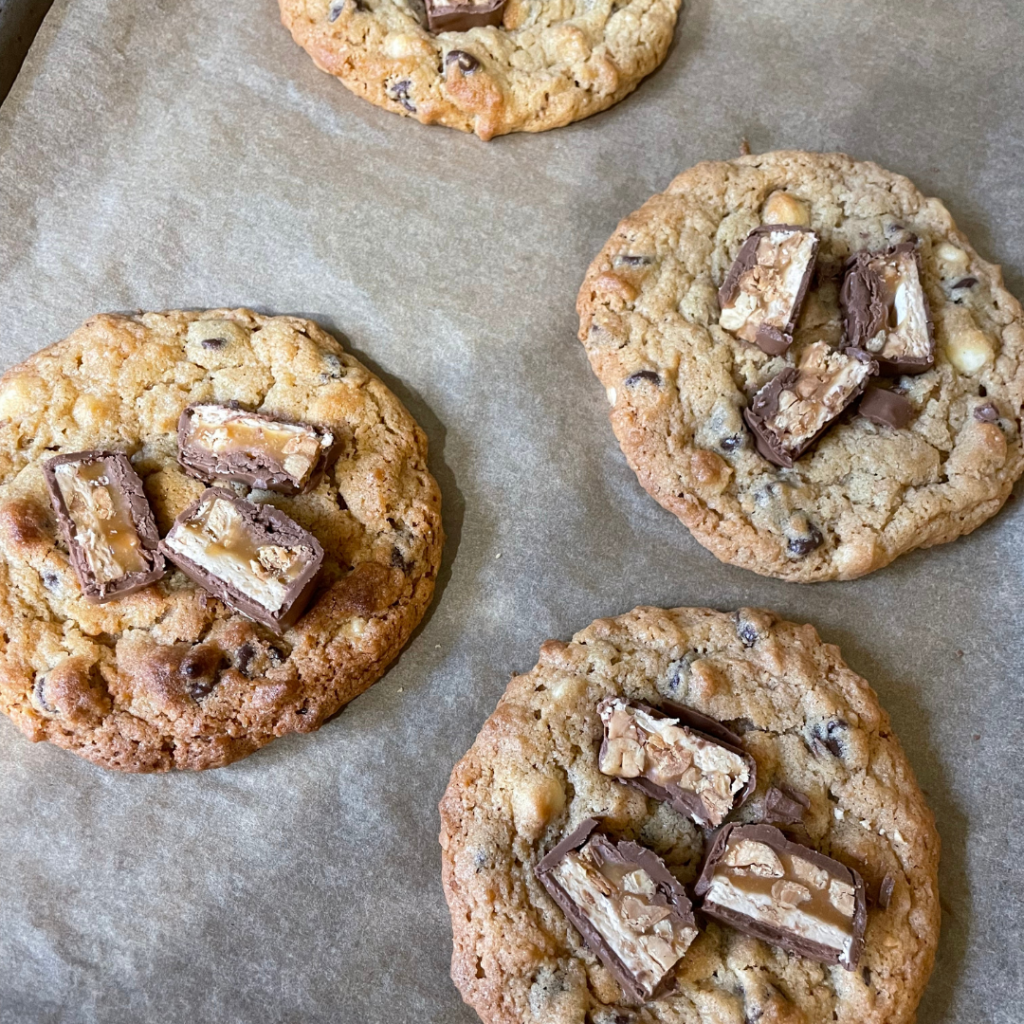
A lot of my Instagram feed isn’t full of the gut-friendly dinners and whole food energy boosting snacks I make; it’s more often about my Friday baking sessions, my Monday kitchen experiments. Of course, I want you guys to feel inspired by your cooking to make things that fuel your health, but what’s more important is curating and maintaining a direct connection with your food. That means spending time in the kitchen doing what doesn’t just fuel your physical self, but what makes you feel inspired and connected to your food.
Now that sounds wishy washy and how does a candy floss style sentiment like that help ANY of my athletes reach the peak capacity of their performance?! Easy. In order to achieve peak performance, we need to do two major things.
1. Nourish the HUMAN FIRST: This means thinking about general daily health. You cannot build a superior athlete if you are not nourishing your basic human needs as the foundation.
2. Feed your athlete machine: Once you have a solid nutritional foundation as a human, you can start thinking about the minutiae of what it takes to feed an athlete. Because that’s a bit different.
And in order to nourish the human first, we need to be acknowledging the connections between ourselves as humans, and the ingredients we put in our tanks. Cooking is not simply about creating healthy dishes to fuel physical health. Cooking ANYTHING in the kitchen from cakes and biscuits to pasta salads and stir-fries, is about being present and acknowledging the benefits of physically seeing and feeling a connection with food.
When you head to the KFC drive-thru, it’s a mindless activity focused purely on your feel-good hormones, the instant dopamine hit you get from it. But cooking a tray of brownies for friends is about thinking actively about the outcome you want to achieve – how will you make people smile with something, squidgy, chocolatey and delicious with the skills and ingredients you have in your own kitchen? It’s a connection that enables you to truly appreciate time with food, not just thinking about calories in and calories out.
One of the biggest changes most athletes can make to their performance through their diet, is simply getting back into the habit of home cooking.

1. Enhances Nutritional Quality: Planning meals to be made at home forces you to think about ingredients you can lay your hands on. It means you’re less likely to introduce ultra-processed foods with lower nutritional content which simply add calories without much else of benefit to you. Making a bolognese from scratch using tinned tomatoes, grass-fed beef mince and vegetables from the fridge, is always going to contain more micronutrients and better quality macros than the pre-prepped one from the supermarket ready meal shelf, with all the added sugar, stabilisers and thickeners that could upset your gut and add empty calories to your meal.
2. Promotes Mindful Eating: The act of cooking at home encourages mindfulness—a practice often overlooked in the fast-paced world of ambitious athletes. By slowing down and focusing on the cooking process, we can develop a more thoughtful relationship with food. This can help MASSIVELY when you’re trying to overcome disordered eating habits and overcome the overwhelming and stressful relationships you’ve had with body image, sport and food for so long.
3. Tailors Nutrition to Specific Needs: The beauty of being the chef is you can choose! You can leave out the stuff you don’t like, or better still – as happens so often in my kitchen – add in a load of extra plant points for health benefits. You can choose whether you need some extra carbs, you can choose what portion sizes you need, you can choose the different flavours you like more or less of and more importantly, if you’re someone who suffers with intolerances or specific dietary needs, you can be certain your food is free of the stuff that could be risky for you.
4. Builds a Positive Food Culture: Let’s not forget that food isn’t just fuel. It’s social. It’s part of the communal needs we have as social creatures. Getting together to enjoy cooking, sharing recipes, eating together and feeding others can benefit not just our physical health, but our spiritual side too. And we’re always much more likely to make something healthy and delicious when we’re nourishing our mates than when it’s a TV dinner for one! Arranging the Friday night team dinner or, as I do, baking the treats for the Saturday night track gang, simply gives you the feel goods about spending time in the kitchen. And the more of that you get, the more you’ll want to be in there, the more you’ll cook, the more confident you’ll get and likely, the healthier and happier you’ll be around food!
Getting Started: Tips for Time-Crunched Athletes
Of course, the biggest argument I come up against is the people that say “I don’t have time.” Most of my clients are time starved and that can easily translate into cooking and eating being the first things pushed down an already crammed agenda. My answer? You need to make this a priority. Nobody wants to hear me say that. People want to hear the “life hacks”, but you won’t get those from me. Yes, there are time-savers, but the whole point of this is that I want you to ENJOY thinking about where your food comes from and ENJOY cooking it. Because if you can learn to love that process, you are much more likely to continue doing it for the long term, and that’s going to benefit you, HUGELY.
That said, given time is usually the biggest barrier to getting started on spending time in the kitchen, let’s talk about how we can overcome it so it doesn’t feel totally overwhelming and off-limits to begin with…
1. Plan Ahead: Dedicate a few hours each week to meal planning and grocery shopping. Investing time upfront can save you hours later in the week and ensures that you have the ingredients needed to prepare nutritious meals. Remember, eating is part of training! You timetable and meticulously schedule your training sessions – do the same for cooking and eating windows.
2. Batch Cooking: As a general rule, I never limit the evening meal to two portions if it’ll keep for at least an extra day. With bigger longer cooks like stews, curries and casseroles, I’ll frequently cook six portions and freeze a couple. That’ll make dinner, lunches and some leftovers for a day when I know we’ll be starved on time. So think ahead and go big!
3. Simple Recipes: Focus on simple, nutritious recipes that require minimal ingredients and preparation time. Meals that can be prepared in 30 minutes or less are ideal for fitting into a tight schedule. I have about four go-to recipes for nights where there is a tight-turnaround and I know it’ll be a bit of a squeeze getting home from work and getting out to train again.
4. Utilise Technology: There are a few kitchen gadgets worth the investment. One is a microwave – you’ll be surprised what you can get done with ease in there, like risottos, potatoes and veggies. The second is a decent sized food processor. My Magimix is a real workhorse and does everything from chopping nuts for my morning muesli, to blitzing up homemade pestos and hummus in minutes. Honestly, you won’t look back!
5. Learn the Basics: Start with fundamental cooking skills and recipes. As you become more comfortable in the kitchen, you can experiment with more complex dishes and flavors. Don’t be scared and enjoy the process. If you’ve never cooked before, remember you can learn anything on YouTube! And it can be fun! The more skills you learn, the quicker and easier your cooking will become, so invest some time when you have a few hours spare at the weekend, practicing things when you DO have time, that will pay off as honed skills when you DON’T. Even getting better with your knife at prepping veggies can save you bags of time when you can do it confidently for week night time saver recipes, but you’ve got to start somewhere!

Moving Beyond Disordered Eating
For athletes struggling with disordered eating, connecting with food through home cooking can be a powerful tool in recovery. It encourages a shift from viewing food purely as fuel or in terms of caloric value, to appreciating it as a source of nourishment and enjoyment. This shift is vital for developing a balanced and healthy relationship with food, sport, and body image and it can teach you to love food and cooking all over again. The more you do, hopefully the more love you have for it, for longer.
And if you want to talk to me about how I could help with your overwhelm when it comes to food and nutrition, as well as help you hit your next PB, get in touch and book a FREE no obligation call here.

